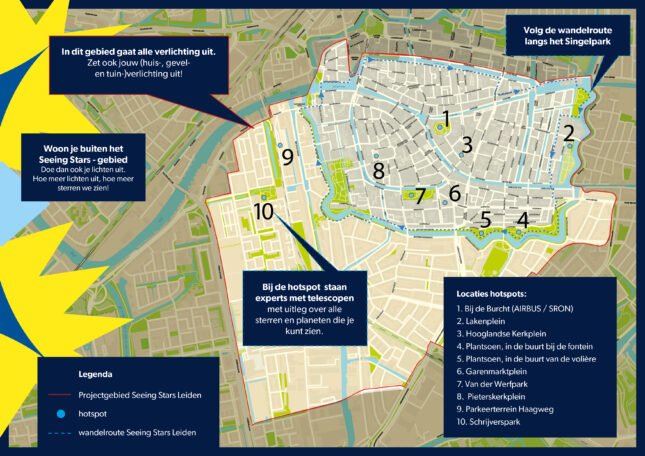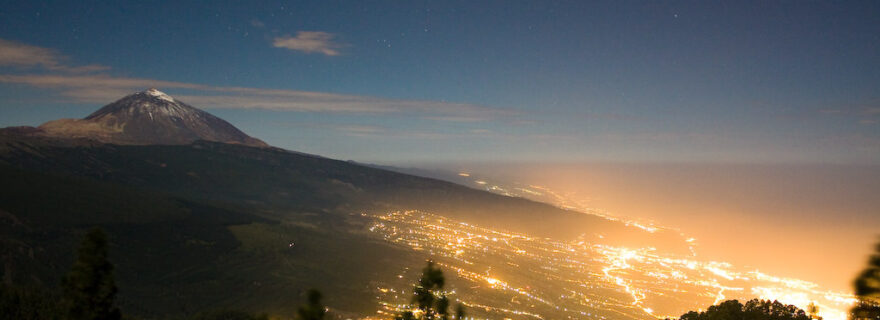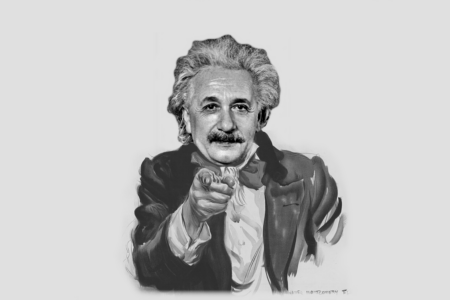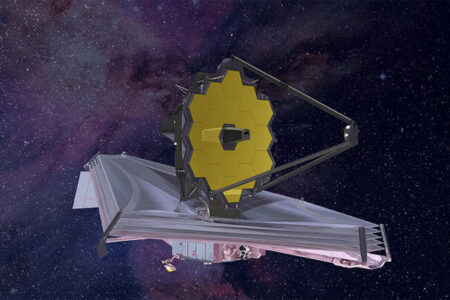Lights out, stars on!
You too, have probably looked at the night sky and maybe searched for some constellations, spotted a planet or just enjoyed the twinkling stars. And you may have noticed that you are able to see more stars in darker areas. This is why Leiden will be in the dark on the 25th of September.
The weather allows it, so all of the public lights will go out between 22:00 and 23:30 next Sunday. Every resident will be asked to turn off their lights too. When it's dark enough, you may go outside and admire the sky full of stars. A special route with "hotspots" has been laid out for it.
Starwalk
The so-called "Sterrenwandeling" (Starwalk) will lead you through the Singelpark. you will walk a circle around the city centre, from the edges of the dark area to the heart of the darkness. During your walk you will also pass a couple of the hotspots. On the ticket the route and the locations of the ten hotspots are indicated. A team of experts and students are standing at these hotspots with a telescope. They can tell you all there is to see and aim the telescope at exactly the right star.
Seeing Stars also announces the first edition of the Space Week. During this week you can visit the Oude Sterrenwacht (Old Observatory) or the SRON, or be present at a demonstration of the James Webb telescope or even recreate it with Lego!


Light pollution
The main goal of this evening is of course to give everyone a chance to see the stars like you should be able to see them: without being surrounded by artificial light. To find out how grave this light pollution is exactly, everybody will be asked to do measurements themselves. This way it is possible to see the difference between the normal situation in Leiden and the situation during the night of September 25. Would you like to help? Look here!
Apart from not being able to see the stars, light pollution also has other consequences. Artificial light has been a great invention for people, but now the drawbacks are starting to show up. It costs a lot of energy to constantly light up our surroundings at night, and so a lot of money and resources. 40% of the electricity bill of most city's is spent on streetlights alone.
24-hour clock
Streetlights also cause a disruption in the 24-hour clock of humans and other organisms around us. In humans this disturbance even seems related to breast cancer.
On top of that the amount of light also causes migrating birds to get disorientated and get exhausted or fly against tall structures. Insects are attracted to lamps and die eventually, which doesn't help with saving the insect population.
And even in and around the sea animals aren't safe. Female sea turtles have a harder time finding nesting places. And when the babies crawl out of the egg they're still not free from the lights: they get disoriented and crawl in the wrong direction.
Under water, fish either need to swim away from light sources, causing a loss of habitat, or they swim towards it, making it easier to catch them. This is why it's not only important for astronomy and our own entertainment to turn off unnecessary lights next sunday, and if it is a success we might even enjoy turning them off more often!







0 Comments
Add a comment